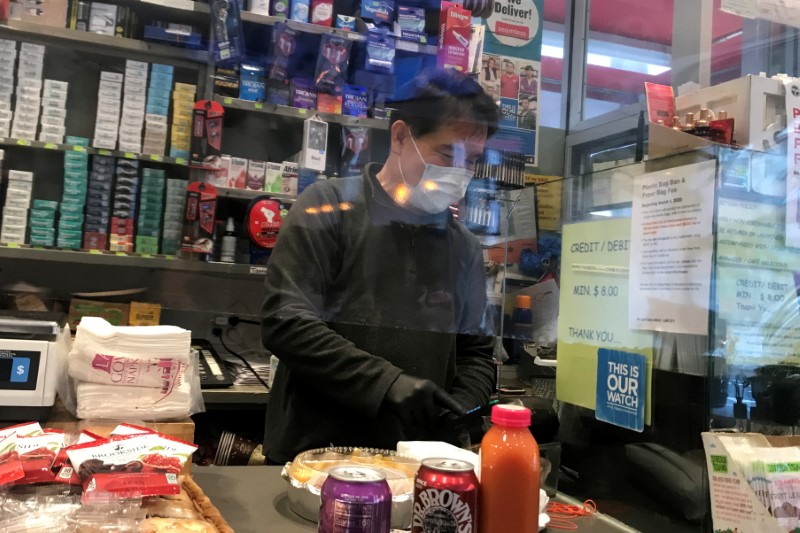By Andrea Shalal
WASHINGTON (Reuters) - White House plans to expand "Buy America" mandates to the medical equipment and pharmaceutical sectors could worsen shortages of urgently needed medicines and delay discovery of a vaccine for the new coronavirus, over 80 business groups warned.
The U.S. Chamber of Commerce and dozens of other business and trade groups urged U.S. Treasury Secretary Steven Mnuchin, White House economic adviser Larry Kudlow and other top U.S. officials to drop plans for the order, arguing it would also damage U.S. trading relationship for years to come.
"Preventing federal agencies from sourcing medical equipment and pharmaceutical ingredients from abroad ... would only exacerbate the supply shortages racking the United States," said a letter from the groups, which was also addressed to Commerce Secretary Wilbur Ross and U.S. Trade Representative Robert Lighthizer.
White House trade adviser Peter Navarro, a long-time trade hawk who is crafting the order, told Fox News late on Wednesday evening that he expected movement on the issue shortly.
"The president's gonna get that done soon," Navarro told Fox News' "Hannity" program, without giving an exact date.
The push has sparked concern in China and elsewhere, rekindling tensions with Beijing at a moment when global leaders are calling for a coordinated response to the outbreak.
Trump will meet with Chinese President Xi Jinping and other leaders of the world's 20 largest economies in an extraordinary video conference meeting on Thursday to map out a plan to combat the health and economic impacts of the pandemic.
Navarro said the executive order would provide long-term incentives to U.S. companies to produce equipment in the United States through Buy America provisions, deregulation and incentives for 3D printing and other advanced technologies.
In their letter, the groups, including the Pharmaceutical Research and Manufacturers of America, said U.S. industry would "do whatever it takes" to respond to the pandemic, which has infected over 53,000 in the United States and killed 730.
But they said the order could worsen shortages of drugs and medical products and undermine prospects for economic recovery since U.S. companies needed access to international supply chains to produce needed goods.
"The United States cannot shut itself off from the rest of the world," the groups wrote. "Turning our backs on trading partners during a crisis could damage our relationships long after this pandemic ends," they wrote.

U.S. trading partners could also retaliate and limit U.S. imports if Washington imposed local content requirements, they said.